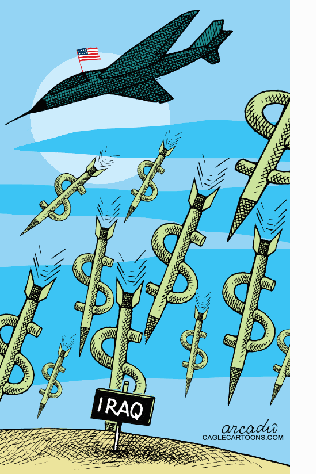
Back in the pioneer days of the Internet- the veritable “boom times”, when men were real men, women were real women, and the Internet was called the “Information Superhighway”- a drunk man misspelled a four-letter expletive and, on a whim, decided to register it as a domain name. No particular reason why- not that a drunk needs a reason for doing crazy things, of course. Indeed, for the first two years of it’s existence, this site’s sole purpose was to display a picture of a squirrel with giant testicles.
Who would have imagined that a mere ten years later, that site would become one of the Internet’s few runaway entrepreneurial success stories- and an important part of the 2008 Presidential elections?
The first thing Drew Curtis, founder and operator of Fark.com, would like you to know is that The first thing you should know is that Fark isn’t a Weblog. It’s a news aggregator and an edited social networking news site. Every day Fark receives 2,000 or so news submissions from its readership- a link to a news article the submitter found particularly interesting, along with a humorous or snarky headline to “sell” the link. About fifty links a day are actually published on the main page.
Sounds simple? Maybe that’s why it works so well, because at over 4 million unique visitors a month, FARK.com is one of the most popular English-language sites on the Internet.
Popular though it may be, Fark doesn’t naturally pop to mind when thinking of US politics. Sites like LittleGreenFootballs, DailyKos, and FiveThirtyEight. Indeed, part of it’s mass appeal is that the impetus for Fark is, and always has been, grounded in humor.
In the course of writing a term paper on the role the Internet, and the blogosphere in particular, played in the 2008 Presidential elections, I emailed a wide variety of people seeking their opinions of how the process worked. Perhaps overly-ambitious, I fired off emails to everyone from Keith Olbermann to Michelle Malkin. David Frum and I chatted briefly, but he was too busy for an interview. The same story held true for Christopher Buckley and Nate Silver. Markos Moulistas, and Erick Erickson both blew me off after hearing some of the questions I wanted to ask*.
The only person to sit down and talk with me in detail was Drew Curtis. While I didn’t get to use it in my term paper (thanks to the lack of other interviewees), I have transcribed it here for posterity’s sake. In light of recent events, and seeing how polarized our political discussion process has become, I think it’s even more interesting than it was this spring.
Without further ado- Drew Curtis and Fark.com’s contribution to US politics, in his own words:
 With the media reporting for the eleventeenth time that Obama has,
With the media reporting for the eleventeenth time that Obama has, 



